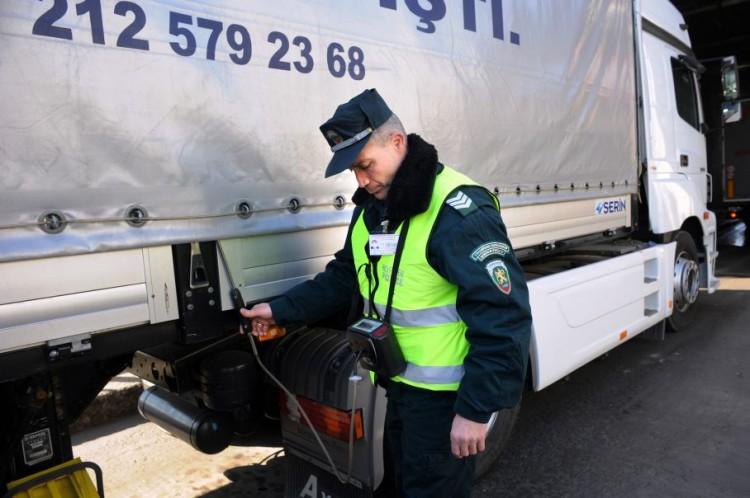After establishing the eurozone, border controls became a thing of the past as agreed upon under the Schengen Agreement of 1985.
“The Schengen area represents a territory where the free movement of persons is guaranteed. The signatory states to the agreement have abolished all internal borders in lieu of a single external border,” according to the Europa website.
The cooperation and coordination of the Schengen Agreement became part of “the European Union (EU) legal framework by the Treaty of Amsterdam of 1997.”
In 1985, border controls between France, Germany, Belgium, Luxembourg, and the Netherlands were eliminated. Today, almost all eurozone countries have signed the agreement and opened their borders, with the exception of Bulgaria, Cyprus, and Romania, as they have not yet fulfilled the conditions for free entry into the other eurozone countries.
The Official Journal of the European Communities states that there is one exception to the Schengen treaty “where public policy or national security so require a Contracting Party may, after consulting the other Contracting Parties, decide that for a limited period national border checks appropriate to the situation shall be carried out at internal borders.”
In May 2011, Denmark announced that it would bring back border control at land borders, airports, and ports. According to the Security & Defence Agenda, a European think tank based in Brussels, the European Commission objected, stating that the Schengen treaty may not be violated. Denmark’s newly elected government scrapped the border control plans in October 2011, according to media reports.
Europe’s Political Elite Keeps Mum
“[There are] two key developments in Europe which virtually NO ONE is talking about: the creation of border controls and capital controls. The political elite are doing this for only one reason: they know it’s GAME OVER in the EU,” according to a recent article on the Phoenix Capital Research website.
With respect to capital controls, the article suggests that the European Central Bank (ECB) can no longer hand over money to some of its members in debt unless it gets the money printing machines rolling. This is not an easy task as each eurozone country has its own political system and objectives.
The ECB’s problem concerning printing more money is that it “would run smack dab into a brick wall of political and ideological division,” according to a recent article on the Advisor Perspectives website.
On June 6, Mario Draghi, president of the ECB, held a press conference, during which he made it clear that the ECB will not change its path and continue to keep the interest rate unchanged. At the same time, he implied that there would be no money printed in the foreseeable future.
“ECB Meeting—No Horse Trading, No Additional Money Printing (for now),” reported Merk Investments LLC, referencing Draghi’s press conference.
However, printing money is not the only solution, as issuing Eurobonds would bring investors to the table and the risk would be distributed among many.
“European leaders meeting on Wednesday for an informal dinner in Brussels will try to resolve a dispute over whether to issue joint European bonds as an antidote to the crisis of confidence in weakened euro zone members’ sovereign debt,” reported a June 15 article on the Nasdaq website.
For the time being, the French will support the issuance of Eurobonds, while Germany is opposed to such a move. The Germans believe that issuing Eurobonds would result in a legal responsibility by all European countries, thus lowering the interest rates of vulnerable countries, but without these countries having to practice fiscal responsibility by lowering their debt.
Mainly, the Germans are worried that these nations will not buy into the austerity principle and continue to spend money as if there were no tomorrow.
“Berlin believes this would send the wrong incentive to weakened euro zone countries and take the pressure off politicians to reform their economies and markets,” the Nasdaq article suggests.
Reintroducing Border Controls
Calling it “a vote of no confidence in Europe,” German Spiegel Online International warned in April: “Germany and France’s joint proposal to allow Schengen-zone countries to temporarily reintroduce border controls as a means of last resort might sound harmless. But doing so would damage one of the strongest symbols of European unity and perhaps even contribute to the EU’s demise.”
In mid-April, the interior ministers of France and Germany, Claude Guéant and Hans-Peter Friedrich, petitioned the president of the EU for a Schengen treaty amendment, allowing the Schengen signers to re-establish border controls for 30 days without having to ask for permission from EU members.
“Acceptance of this proposal would impair the powers of EU institutions (the European Commission) and strengthen those of individual member states,” according to a weekly analytical newsletter issued at the end of April by the Centre for Eastern Studies, a European think tank.
The European media suggests that addressing border control issues is not just a symbolic gesture by Germany and France, but a quiet rebellion against the European Commission, because the Commission has lately reasserted its right to get involved in border control measures.
“This is a demonstration of strength against the European Commission, which recently asserted its right to have a voice on issues related to border controls,” the Spiegel article suggests.
Interpreting the Border and Capital Control Issue
Phoenix Capital Research suggests that “the move to create border controls is about one thing only: stopping people from fleeing with their money when the collapse comes. The political elite in Europe are watching the bank runs in Spain and Greece and know that when the big Crash comes similar runs will occur throughout the EU.”
To support the above contention, a number of reasons are expounded upon with the first one suggesting that the Swiss National Bank, which is the Swiss central bank, will enforce capital controls on foreign deposits should Greece leave the euro currency.
Thomas Jordan, head of the Swiss National Bank, suggested during a media session that the bank is discussing ways to handle a possible influx of foreign currencies into the country, according to Phoenix Capital Research.
Besides visiting the border control issue, “Germany has made a massive power grab to control most of Europe’s finances,” demanding that debtors pledge their gold reserves and other tangible assets as collateral, Phoenix Capital Research said.
The Germans have multiple objectives in mind: One is to push aside the ECB as a major lender. A second objective is to force its austerity plan down the throats of other nations. Thirdly, the country has already established a bailout fund where German banks can unload EU sovereign bonds.
The German handling of the situation appears to be a clear indication that Germany is well aware of the problems facing the eurozone and will only play along if everyone plays by its rules.
“Potential border controls in the EU and capital controls in safe haven Switzerland to stop inflows of funds? If that doesn’t tell you point blank that the political elite in the EU are scared stiff, nothing will,” Phoenix Capital Research said.
The Epoch Times publishes in 35 countries and in 19 languages. Subscribe to our e-newsletter.






